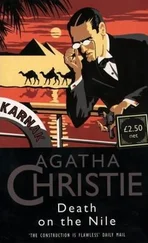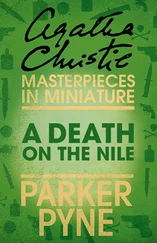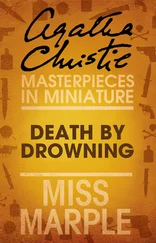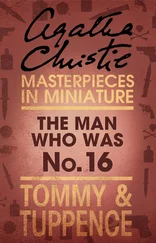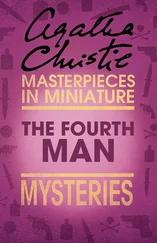Agatha Christie - Dead Man's Folly
Здесь есть возможность читать онлайн «Agatha Christie - Dead Man's Folly» весь текст электронной книги совершенно бесплатно (целиком полную версию без сокращений). В некоторых случаях можно слушать аудио, скачать через торрент в формате fb2 и присутствует краткое содержание. Жанр: Классический детектив, на английском языке. Описание произведения, (предисловие) а так же отзывы посетителей доступны на портале библиотеки ЛибКат.
- Название:Dead Man's Folly
- Автор:
- Жанр:
- Год:неизвестен
- ISBN:нет данных
- Рейтинг книги:5 / 5. Голосов: 1
-
Избранное:Добавить в избранное
- Отзывы:
-
Ваша оценка:
- 100
- 1
- 2
- 3
- 4
- 5
Dead Man's Folly: краткое содержание, описание и аннотация
Предлагаем к чтению аннотацию, описание, краткое содержание или предисловие (зависит от того, что написал сам автор книги «Dead Man's Folly»). Если вы не нашли необходимую информацию о книге — напишите в комментариях, мы постараемся отыскать её.
Dead Man's Folly — читать онлайн бесплатно полную книгу (весь текст) целиком
Ниже представлен текст книги, разбитый по страницам. Система сохранения места последней прочитанной страницы, позволяет с удобством читать онлайн бесплатно книгу «Dead Man's Folly», без необходимости каждый раз заново искать на чём Вы остановились. Поставьте закладку, и сможете в любой момент перейти на страницу, на которой закончили чтение.
Интервал:
Закладка:
"Ten minutes to go, still," said Poirot, consulting his large old-fashioned watch. "Shall I bring a cup of tea here?"
"No, no. I want the break. This tent is stifling. Are there a lot of people waiting still?"
"No, I think they are lining up for tea."
"Good."
Poirot emerged from the tent and was immediately challenged by a determined woman and made to pay sixpence and guess the weight of a cake.
A hoop-la stall presided over by a fat motherly woman urged him to try his luck and, much to discomfiture, he immediately won a large Kewpie doll. Walking sheepishly along with this he encountered Michael Weyman who was standing gloomy on the outskirts near the top of a path that led down to the quay.
"You seem to have been enjoying yourself, M. Poirot," he said, with a sardonic grin.
Poirot contemplated his prize.
"It is truly horrible, is it not?" he said sadly.
A small child near him suddenly burst out crying. Poirot stooped swiftly and tucked the doll into the child's arm.
"Voilа, it is for you."
The tears ceased abruptly.
"There – Violet – isn't the gentleman kind? Say, Ta, ever so -"
"Children's Fancy Dress," called out Captain Warburton through a megaphone. "The first class – three to five. Form up, please."
Poirot moved towards the house, and was cannoned into by a young man who was stepping backwards to take a better aim at a coconut. The young man scowled and Poirot apologised, mechanically, his eye held fascinated by the varied pattern of the young man's shirt. He recognised it as the "turtle" shirt of Sir George's description. Every kind of turtle, tortoise and sea monster appeared to be writhing and crawling over it.
Poirot blinked and was accosted by the Dutch girl to whom he had given a lift the day before.
"So you have come to the fête," he said. "And your friend?"
"Oh, yes, she, too, comes here this afternoon. I have not seen her yet, but we shall leave together by the bus that goes from the gates at five-fifteen. We go to Torquay and there I change to another bus for Plymouth. It is convenient."
This explained what had puzzled Poirot, the fact that the Dutch girl was perspiring under the weight of a rucksack.
He said: "I saw your friend this morning."
"Oh, yes, Elsa, a German girl, was with her and she told me they had tried to get through woods to the river and quay. And the gentleman who owns the house was very angry and made them go back."
She added, turning her head to where Sir George was urging competitors at the coconut shy:
"But now – this afternoon, he is very polite."
Poirot considered explaining that there was a difference between young women who were trespassers and the same young women when they had paid two shillings and sixpence entrance fee and were legally entitled to sample the delights of Nasse House and its grounds. But Captain Warburton and his megaphone bore down upon him. The Captain was looking hot and bothered.
"Have you seen Lady Stubbs, Poirot? Anyone seen Lady Stubbs? She's supposed to be judging this Fancy Dress business and I can't find her anywhere."
"I saw her, let me see – oh, about half an hour ago. But then I went to have my fortune told."
"Curse the woman," said Warburton angrily. "Where can she have disappeared to? The children are waiting and we're behind schedule as it is."
He looked round.
"Where's Amanda Brewis?"
Miss Brewis, also, was not in evidence.
"It really is too bad," said Warburton. "One's got to have some co-operation if one's trying to run a show. Where can Hattie be? Perhaps she's gone into the house."
He strode off rapidly.
Poirot edged his way towards the roped-off space where teas were being served in a large marquee, but there was a long waiting queue and he decided against it.
He inspected the Fancy Goods stall where a determined old lady very nearly managed to sell him a plastic collar box, and finally made his way round the outskirts to a place where he could contemplate the activity from a safe distance.
He wondered where Mrs Oliver was.
Footsteps behind him made him turn his head. A young man was coming up the path from the quay; a very dark young man, faultlessly attired in yachting costume. He paused as though disconcerted by the scene before him.
Then he spoke hesitatingly to Poirot.
"You will excuse me. Is this the house of Sir Georges Stubbs?"
"It is indeed." Poirot paused and then hazarded a guess. "Are you, perhaps, the cousin of Lady Stubbs?"
"I am Etienne de Sousa -"
"My name is Hercule Poirot."
They bowed to each other. Poirot explained the circumstances of the fête. As he finished, Sir George came across the lawn towards them from the coconut shy.
"De Sousa? Delighted to see you. Hattie got your letter this morning. Where's your yacht?"
"It is moored at Helmmouth. I came up the river to the quay here in my launch."
"We must find Hattie. She's somewhere about… You'll dine with us this evening, I hope?"
"You are most kind."
"Can we put you up?"
"That also is most kind, but I will sleep on my yacht. It is easier so."
"Are you staying here long?"
"Two or three days, perhaps. It depends." De Sousa shrugged elegant shoulders.
"Hattie will be delighted, I'm sure," said Sir George politely. "Where is she? I saw her not long ago."
He looked round in a perplexed manner.
"She ought to be judging the children's fancy dress. I can't understand it. Excuse me a moment. I'll ask Miss Brewis."
He hurried off. De Sousa looked after him. Poirot looked at De Sousa.
"It is some little time since you last saw your cousin?" he asked.
The other shrugged his shoulders.
"I have not seen her since she was fifteen years old. Soon after that she was sent abroad – to school at a convent in France. As a child she promised to have good looks."
He looked inquiringly at Poirot.
"She is a beautiful woman," said Poirot.
"And that is her husband? He seems what they call 'a good fellow,' but not perhaps very polished? Still, for Hattie it might be perhaps a little difficult to find a suitable husband."
Poirot remained with a politely inquiring expression on his face. The other laughed.
"Oh, it is no secret. At fifteen Hattie was mentally undeveloped. Feeble minded, do you not call it? She is still the same?"
"It would seem so – yes," said Poirot cautiously.
De Sousa shrugged his shoulders.
"Ah, well! Why should one ask it of women – that they should be intelligent? It is not necessary."
Sir George was back, fuming. Miss Brewis was with him, speaking rather breathlessly.
"I've no idea where she is, Sir George. I saw her over by the fortune teller's tent last. But that was at least twenty minutes or half an hour ago. She's not in the house."
"Is it not possible," asked Poirot, "that she has gone to observe the progress of Mrs Oliver's murder hunt?"
Sir George's brow cleared.
"That's probably it. Look here, I can't leave the shows here. I'm in charge. And Amanda's got her hands full. Could you possibly have a look round, Poirot? You know the course."
But Poirot did not know the course. However, an inquiry of Miss Brewis gave him rough guidance. Miss Brewis took brisk charge of De Sousa and Poirot went off murmuring to himself, like an incantation:
" Tennis Court, Camellia Garden, The Folly, Upper Nursery Garden, Boathouse…"
As he passed the coconut shy he was amused to notice Sir George proffering wooden balls with a dazzling smile of welcome to the same young Italian woman whom he had driven off that morning and who was clearly puzzled at his change of attitude.
He went on his way to the tennis court. But there was no one there but an old gentleman of military aspect who was fast asleep on a garden seat with his hat pulled over his eyes. Poirot retraced his steps to the house and went on down to the camellia garden.
Читать дальшеИнтервал:
Закладка:
Похожие книги на «Dead Man's Folly»
Представляем Вашему вниманию похожие книги на «Dead Man's Folly» списком для выбора. Мы отобрали схожую по названию и смыслу литературу в надежде предоставить читателям больше вариантов отыскать новые, интересные, ещё непрочитанные произведения.
Обсуждение, отзывы о книге «Dead Man's Folly» и просто собственные мнения читателей. Оставьте ваши комментарии, напишите, что Вы думаете о произведении, его смысле или главных героях. Укажите что конкретно понравилось, а что нет, и почему Вы так считаете.


